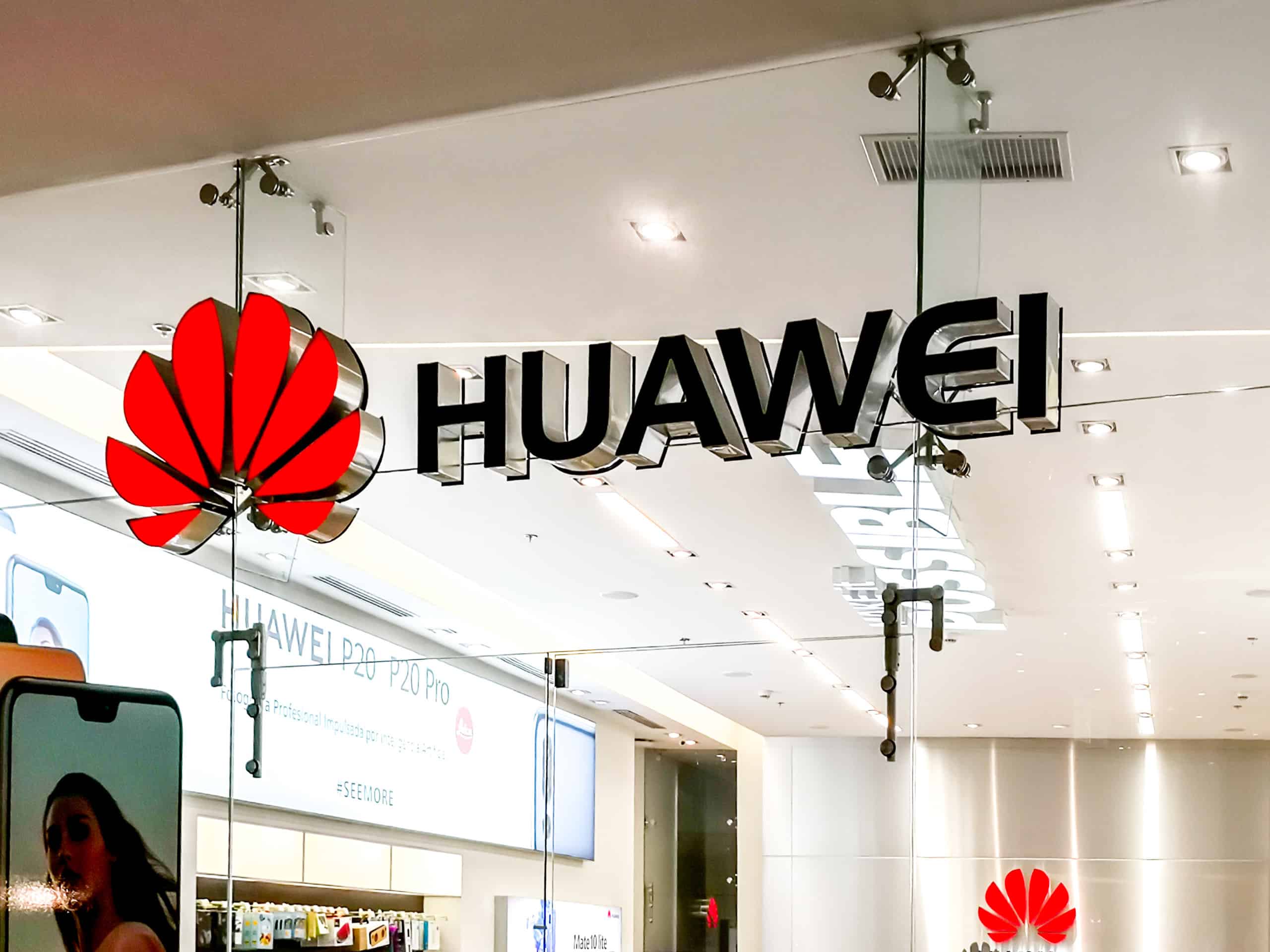Good evening. The big three cabinet positions in the U.S. are typically the Secretary of State, the Secretary of Defense, and the Secretary of the Treasury. But as our cover story this week shows, the Secretary of Commerce, Gina Raimondo, is increasingly high profile, in large part because her department is where the rubber meets the road in terms of the U.S.’s China policy. Elsewhere, we have infographics on the state of U.S.-China air travel, which is a long way from pre-pandemic levels; an interview with James Zimmerman on his new book and the hostage crisis that changed China; an op-ed from Stephen Roach on a new architecture for U.S.-China engagement; and an op-ed from Eyck Freymann and Elettra Ardissino on the breakdown in China-EU relations. If you’re not already a paid subscriber to The Wire, please sign up here.
Want this emailed directly to your inbox? Sign up to receive our free newsletter.
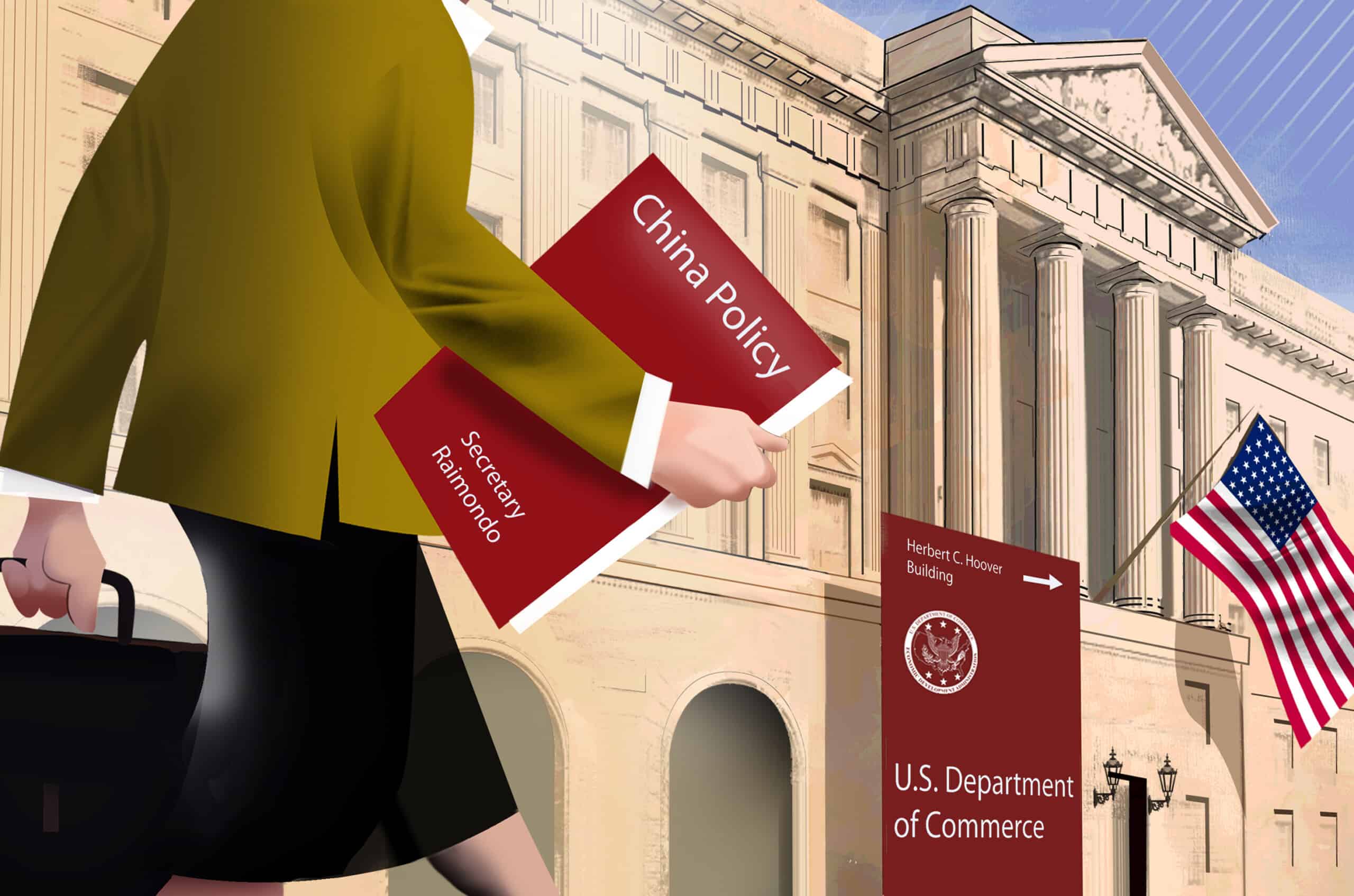
Commerce at the Center
On Thursday, Commerce Secretary Gina Raimondo met with Wang Wentao, the Chinese Commerce Minister, in Washington. It marked the first cabinet-level meeting in Washington between the U.S. and China during the Biden administration, and it was a signal of the Commerce Department’s increasingly central role in the current U.S.-China relationship. Usually, the Commerce Department is far from the center of anything, but as Katrina Northrop reports, the department is uniquely suited to address the China challenge.
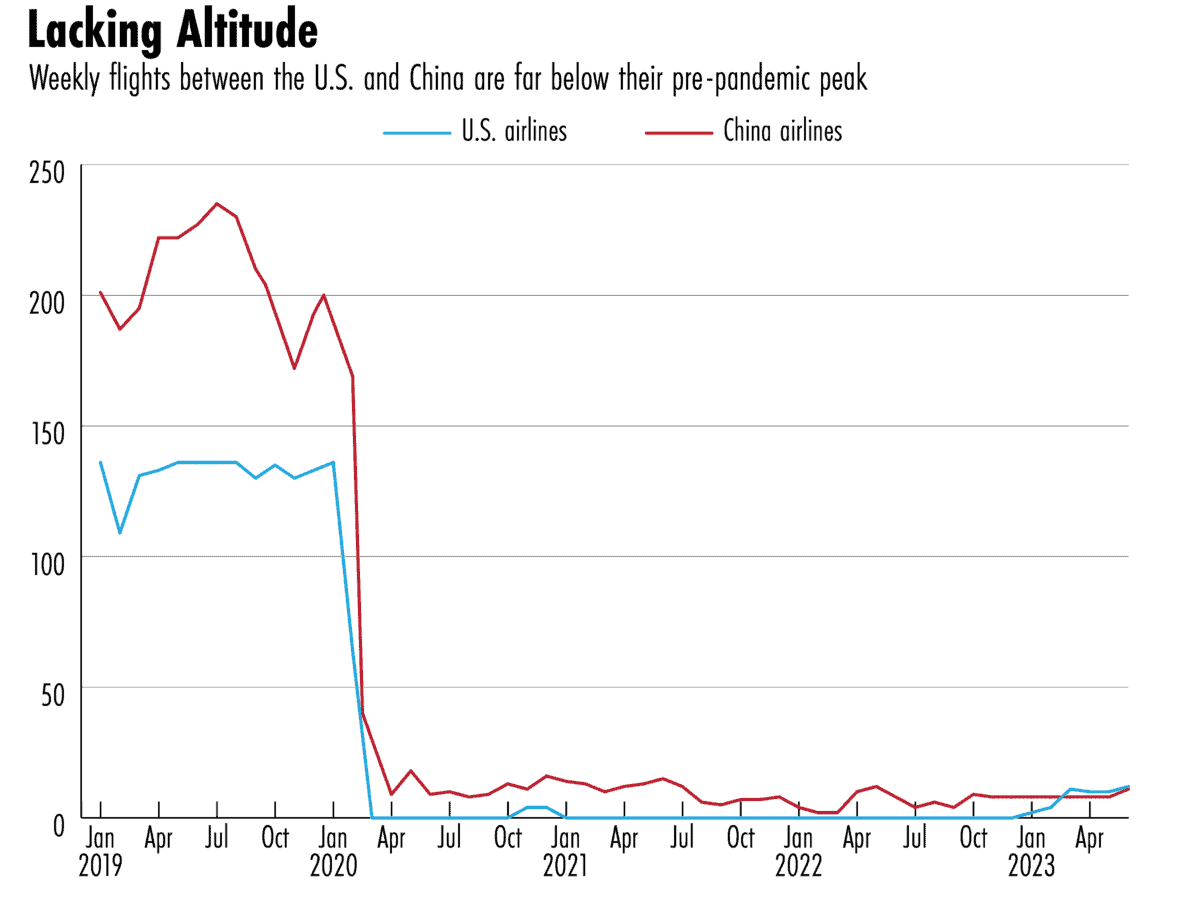
The Big Picture: Failing to Fly
It’s been over half a year since China reopened its borders, but U.S.-China air travel is a long way from bouncing back: weekly flights are down around 95 percent from pre-pandemic levels. This week’s infographics by Eliot Chen look at the state of U.S.-China air travel: how it’s changed, what’s getting in the way of a rebound, and what that means for fliers.
A Q&A with James Zimmerman

James Zimmerman, a partner in the Beijing office of international law firm Perkins Coie LLP law firm, is regarded as one of Asia’s top business lawyers. In April, he published his first non-legal book, The Peking Express: The Bandits Who Stole A Train, Stunned the West, and Broke the Republic of China, which describes the 1923 hostage crisis in which dozens of Chinese and Western travelers were held captive by a bandit army. The Lincheng Incident, as it was called, sparked an international crisis and, Zimmerman argues, led to the downfall of China’s young Republican government. In this week’s Q&A with Brent Crane, he talks about the book, the rise of the Communist Party, and the conditions for foreign media in China today.
James Zimmerman
Illustration by Kate Copeland
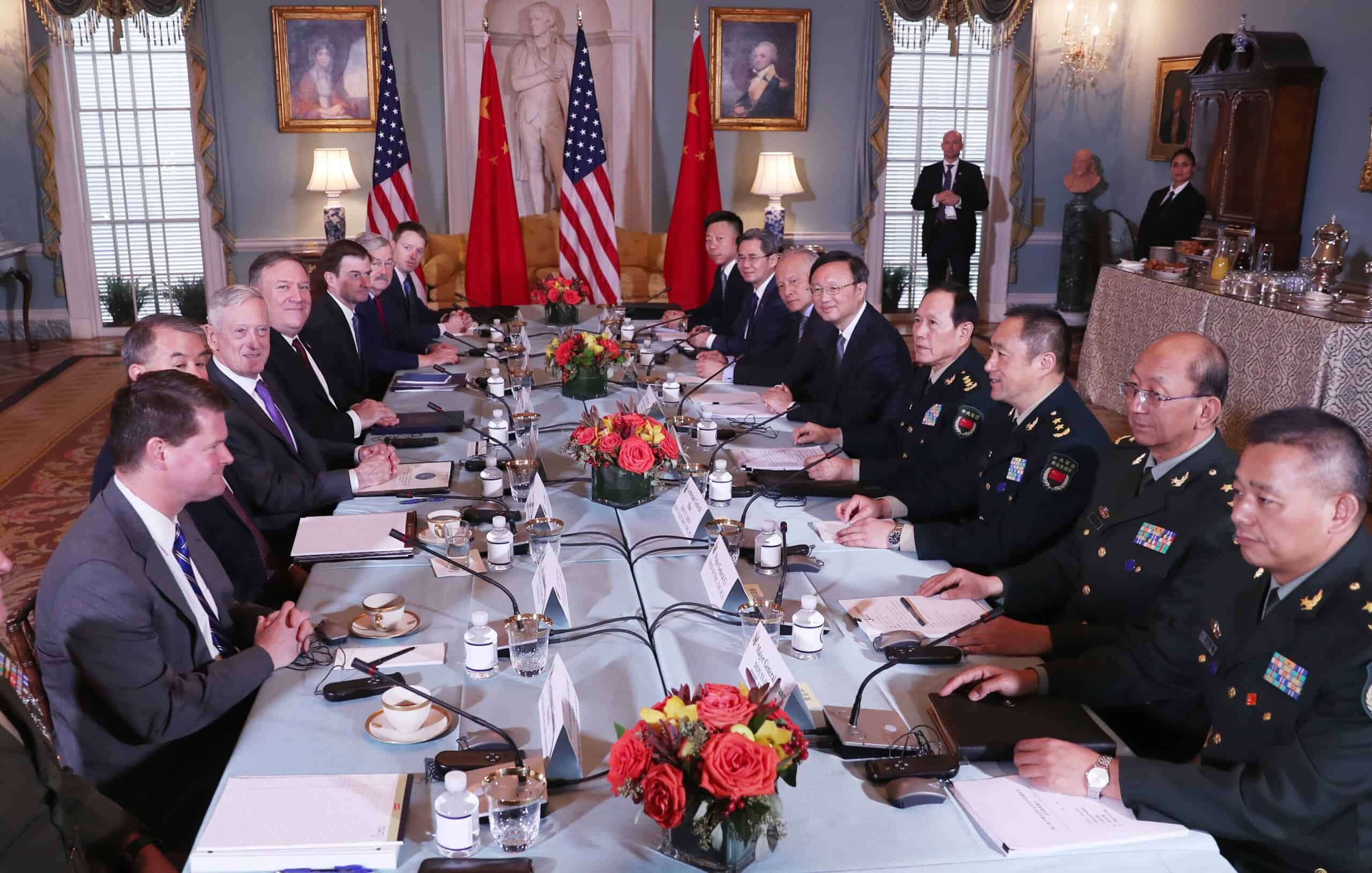
A New Architecture for U.S.-China Engagement
The United States and China need a new architecture of engagement, writes Stephen Roach, one that is divorced from the blame-game of conflict and grounded in an objective and comprehensive assessment of relationship opportunities. A new joint U.S.-China Secretariat offers that structure, he says, and could be key to keeping engagement between the world’s leading economies on track.
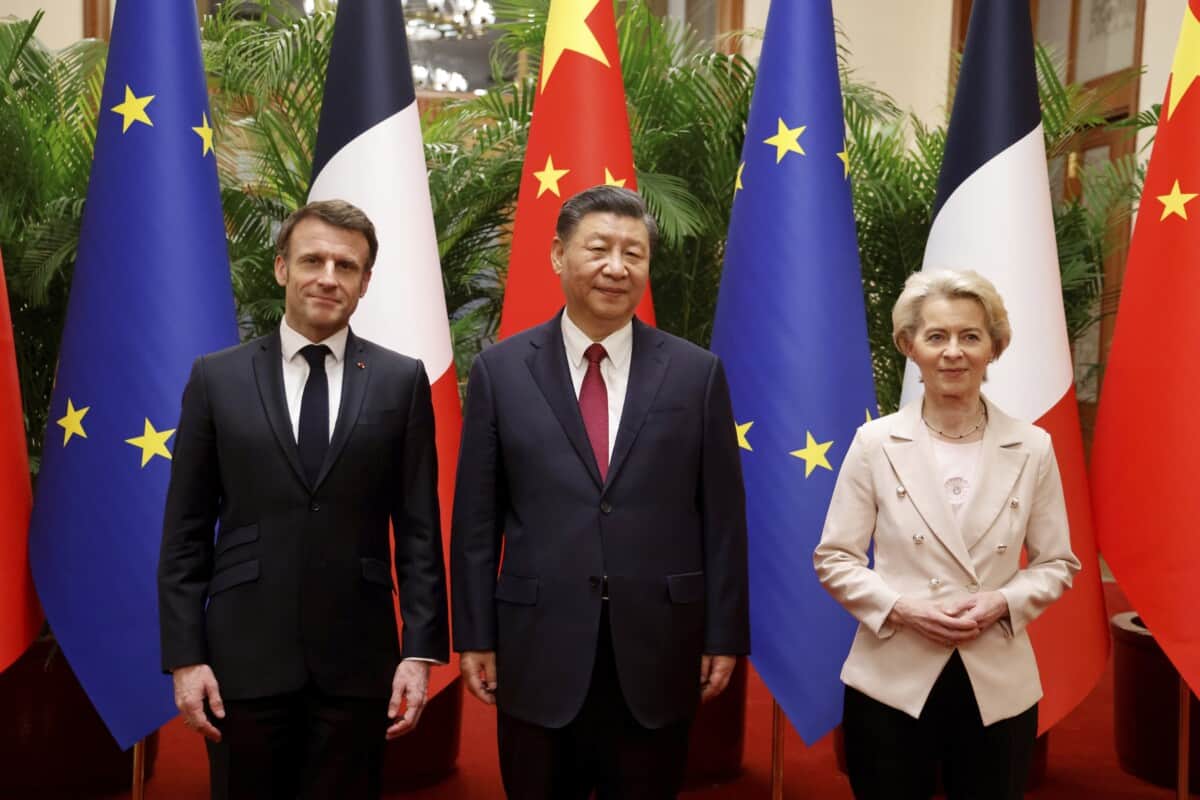
The China-Europe Partnership is Breaking Down
Thanks to structural economic factors, skillful American diplomacy, and Chinese diplomatic incompetence, the breakdown in relations between European capitals and Beijing is poised to accelerate. This represents a strategic opportunity for the U.S., write Eyck Freymann and Elettra Ardissino in this week’s op-ed.
Subscribe today for unlimited access, starting at only $19 a month.



